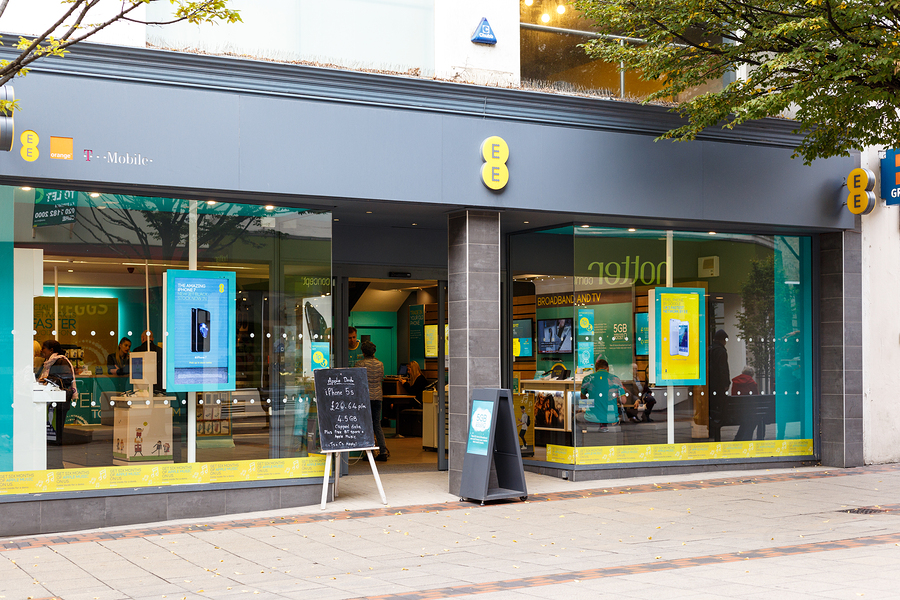Ofcom maps show 3G 'notspots'
Large parts of the UK are unable to access the internet via mobile networks, according to Ofcom map.

According to 3G coverage maps published today by telecoms watchdog Ofcom, significant parts of the population are unable to access high speed internet services via their mobile phones.
Ofcom said that it had studied the services offered by Vodafone, Orange, O2, T-Mobile and 3 mobile with the intention of providing an overview of their national coverage. It explained that such connections were growing in popularity adding that between February 2008 and February 2009 some 1m new contracts had been taken on my consumers.
Ofcom's maps show that although built up metropolitan areas are well catered for, there are also a number of 'not spots' - locales where the signals are less good or non-existent.
"For example, while mobile network coverage in the UK is generally good, some problems persist, particularly in rural areas," it said. "That's why Ofcom is focusing on persistent so-called 'not-spot' areas - areas of poor or no reception - and working where we can to facilitate better mobile coverage. This work will see us assist the Government on its proposals to make more spectrum available for mobile broadband as well as the work to improve 3G coverage on key transport routes".
In order to boost coverage, the watchdog said that it would continue to monitor the situation while also researching the issue and looking for technical solutions.
Ofcom also released the findings of its study into mobile vs landline telephone usage, explaining that people are increasingly turning to the former as their main means of communication. Overall, it found that people in the UK spent a massive extra 11 billion minutes gassing on their mobiles in 2008 than they did in the previous year, while the amount of time they spent on their fixed-lines doing the same dropped by eight billion minutes.
The number of homes with a fixed line also fell, dropping five per cent to just 85 per cent of households. Ofcom added that the number of homes containing mobile phones has remained at roughly 90 per cent since 2002.
Sign up today and you will receive a free copy of our Future Focus 2025 report - the leading guidance on AI, cybersecurity and other IT challenges as per 700+ senior executives
-
 New Ofcom guidelines show it’s getting tougher on big tech
New Ofcom guidelines show it’s getting tougher on big techNews New Ofcom guidance outlining its plans for the Online Safety Act show the regulator is toughening up on big tech.
-
 Ofcom’s draft guidelines on illegal online content set stringent rules for big tech
Ofcom’s draft guidelines on illegal online content set stringent rules for big techNews The codes of practice gives an insight into what the Online Safety Act will mean in practice
-
 UK gov urged to ease "tremendous" and 'unfair' costs placed on mobile network operators
UK gov urged to ease "tremendous" and 'unfair' costs placed on mobile network operatorsNews Annual licence fees, Huawei removal costs, and social media network usage were all highlighted as detrimental to telco success
-
 UK regulator to investigate Amazon, Microsoft, Google cloud services competition
UK regulator to investigate Amazon, Microsoft, Google cloud services competitionNews The regulator is hoping to publish a final report, including its concerns or proposed recommendations, within 12 months
-
 We're addicted to our phones, according to Ofcom
We're addicted to our phones, according to OfcomNews Although always being connected means flexible working, some think it's having a negative impact on relationships
-
 Ofcom reveals automatic compensation for ripped-off broadband customers
Ofcom reveals automatic compensation for ripped-off broadband customersNews £142 million will be automatically paid out to customers receiving a delayed service
-
 Three fined £1.9m for 999 call flaw
Three fined £1.9m for 999 call flawNews Ofcom investigation reveals emergency calls were routed through a single data centre
-
 Ofcom fines EE £2.7m for overcharging 40,000 customers
Ofcom fines EE £2.7m for overcharging 40,000 customersNews Customers dialling 150 number abroad were overcharged £245,700

